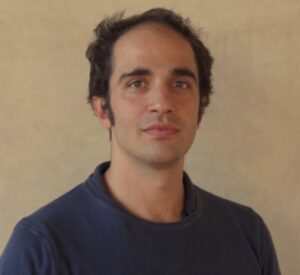- LUHNIP
- Research Team
- Network of LUHNIP's affiliated researchers
- Ongoing Research Projects
- EU Industrial Policy Report
- Policy Briefs
- Working Papers
- Monthly Briefs
- Various Publications
- Third-party Funding and Research Grants
- Work with us
- Contacts
About us
Luiss Hub for New Industrial Policy and Economic Governance (LUHNIP)
About us
Located within the Luiss Research Center for European Analysis and Policy, LUHNIP is a non-partisan, interdisciplinary hub conducting research, policy advocacy and public engagement activities on issues pertaining to industrial policy and economic governance in Europe and in Italy.
It was founded and is directed by Donato Di Carlo with a start-up grant from the Berlin-based think tank Dezernat Zukunft (DZ) in spring 2023. The funding agreement establishes LUHNIP as a temporary Hub at Luiss until December 31, 2025.
LUHNIP is part of the European Macro Policy Network (EMPN), a pan-European network connecting teams of researchers, think tanks and educational organisations that develop Europe’s fiscal, monetary and economic architecture.
Objectives and current activities
LUHNIP combines academic and policy research with an eye to producing articles and proposals for political decision-makers, academics, the media and, more generally, the broader public.
Our aim is to contribute to policy and public debates by providing technical and specialised knowledge on new forms of industrial policy and economic governance, with a focus on Italy, the European Union and the European Economic and Monetary Union (EMU).
Research Team
Donato Di Carlo – LUHNIP Director

ddicarlo@luiss.it
Linkedin: https://www.linkedin.com/in/donato-di-carlo-b0b04284/
Twitter: https://twitter.com/donadica
Website: https://dicarlo.world/

lmoretti@luiss.it
Linkedin: https://www.linkedin.com/in/lorenzo-s-moretti/

dimitri.zurstrassen@uclouvain.be
Linkedin: https://www.linkedin.com/in/dimitri-zurstrassen-6650a197/
Romain Cohen – Research assistant

romain9245@hotmail.fr
Giulio Petrillo – Research assistant

gpetrillo@luiss.it
Linkedin: https://www.linkedin.com/in/giuliopetrillo/
Network of LUHNIP's affiliated researchers
For its academic and policy research activities, LUHNIP benefits from the support and collaboration of a dense network of affiliated international researchers with whom it cooperates to advance and develop LUHNIP’s research activities.







Marco Simoni – Professor of Practice

msimoni@luiss.it
Linkedin: https://www.linkedin.com/in/marco-simoni-b795905/
Twitter: @marcosimoni_


Ongoing Research Projects
LUHNIP initial activities revolve around two main research pillars: one focusing on new forms of industrial policy in the European Union, the other on the resilience and recovery of the Italian economy.
After a hiring campaign during summer 2023, LUHNIP’s research activities began in September 2023, with an eye to producing the first technical reports by spring 2024. Policy advocacy and public engagement activities then followed based on the expertise built through the technical reports.
Technical report: Tackling state (in)capacity in the context of Italy’s recovery and resilience plan
After a decade of fiscal restraint in Europe, the Next Generation EU has emerged as a pivotal game-changer. Breaking away from the austerity tradition, the Recovery and Resilience Facility (RRF) provides ample financial resources for member states to implement investments aimed at stimulating economic growth, fostering social inclusion and driving the green and digital transition. Yet, two years into the implementation of its National Resilience and Recovery Fund (NRRF), Italy is struggling to keep pace with the execution of planned investments, particularly those falling under the responsibility of subnational governments. This is especially problematic for a country in dire need of reversing decades of fiscal austerity and declining public investments.
Against this backdrop, the LUHNIP’s 2nd technical report aims to examine the factors influencing the capacity—or lack thereof—of Italian bureaucracy within the framework of the National Resilience and Recovery Fund. The project starts by analysing the governance system of the Italian NRRF in a comparative perspective with that of other major EU countries (France, Germany, Spain), as well as in comparison to the governance system of the European Structural Funds. Next, it empirically investigates those factors contributing to significant heterogeneity in the implementation capacity among subnational governments. Based on these analyses, the report formulates a series of policy recommendations aimed at strengthening Italy’s future institutional capacity for implementing investments at the subnational level and shaping industrial policy.
For this report, an ad hoc team of researchers has been formed, under the coordination of Dr. Donato Di Carlo, LUHNIP Director. The team includes:
- Alessia Aspide (PhD candidate, Leiden University), Gabriele Beretta (PhD candidate, Scuola Normale Superiore), Camilla Locatelli (PhD candidate, Max Planck Institute for the Study of Societies)
- Lorenzo Mascioli (PhD candidate, European University Institue)
- Prof. Marco Simoni (Luiss).
White paper on Italy’s Industrial Policy
The White paper on Italy’s Industrial Policy provides an in-depth analysis of the evolution and scope of Italy’s industrial policy, offering insights and tools for policymakers to interpret current economic challenges and develop future strategies. Coordinated by Donato Di Carlo and Lorenzo Moretti, this white paper is structured into three core chapters, each focusing on a different aspect that is necessary to develop an informed industrial policy in Italy. With contributions from leading scholars, the whitepaper aims to present a comprehensive analysis of Italy’s strengths, historical policy trends as well as illustrate the policy instruments available to policymakers. It serves as a valuable resource for shaping Italy’s future industrial policy.
The objectives of this report are twofold: first, to identify Italy’s existing and potential comparative advantages across sectors and regions, and second, to analyze the historical practices and policies implemented over the past 30 years. Finally, the report aims to provide a “policy menu” with recommendations for future actions, informed by current industrial policy tools and best practices in the European Union.
The research activities of the team are overseen by a distinguished Scientific Committee, which comprises:
- Prof. Sabino Cassese, Chairman of the LEAP Scientific Committee
- Prof. Piercarlo Padoan, Unicredit Chairman and LEAP SC
- Prof. Valentina Meliciani, Dean of LEAP Luiss
- Prof. Giovanni Orsina, Dean SoG Luiss
- Prof. Anna Giunta, Roma Tre University and LEAP SC
- Dr. Cinzia Alcidi, Head EPU, CEPS
- Dr. Max Krahe, Co-Director Dezernat Zukunft
- Prof. Marco Simoni, Luiss University and LEAP AB
MAINSOC
The MAINSOC project, funded by the European Commission and conducted by six academic institutions—LUISS-LUHNIP, Autonomous University of Barcelona, University of Copenhagen, University of Duisburg-Essen, University of Bologna, and the Warsaw School of Economics—explores the political and socio-economic factors influencing inflationary trends and policy responses from 2021 to 2024 in six European countries (Germany, Denmark, Spain, Italy, Hungary, Poland). The project examines how governments and social partners (such as trade unions and employers) have responded to rising inflation, focusing on safeguarding household purchasing power and mitigating wage inequality, particularly among low-income groups. Key objectives include analyzing wage dynamics, assessing sectoral wage disparities, and evaluating the role of collective bargaining and income policy in tempering the effects of inflation. MAINSOC aims to craft recommendations for policymakers and social partners, emphasizing effective strategies to support real wages and adapt collective bargaining frameworks in the event of future inflationary pressures.
EU Industrial Policy Report
EU INDUSTRIAL POLICY REPORT 2024
- The EU Industrial Policy Report 2024, coordinated by the Luiss Hub for New Industrial Policy and Economic Governance (LUHNIP), addresses the pressing challenges facing the European Union in the wake of geopolitical shifts, economic transformations, and environmental imperatives.
- The report aims to contribute to the current discussion on the future of EU Industrial Policy by providing analyses, as well as viewpoints from different authors, on various dimensions of its past, current and future evolution. To this end, the LUHNIP EU Industrial Policy Report 2024 brings together contributions from a truly interdisciplinary team comprising legal scholars, political scientists, political economists, economists, economic geographers, company managers and policy practitioners to reflect on some of the major issues concerning EU industrial policy.
The report is structured around four thematic pillars essential to the future of EU industrial policy:
1. Legal foundations and the accountability of EU industrial policy
2. The governance of EU industrial policy and inter-institutional coordination
3. Territorial inequalities and the spatial dimension of EU industrial policy
4. Sectoral policies for strategic autonomy and the twin transition
- In Chapter 1, Dimitri Zurstrassen and Sanne van der Lugt provide a historical perspective on EU industrial policy, examining its successes and failures from the 1960s to 2019. The chapter highlights Europe’s struggle to remain competitive in high-tech sectors.
- In Chapter 2, Paul Dermine and Maria Patrin explore the fragmented legal framework governing EU industrial policy, focusing on how adjacent policy fields like competition and state aid can support a more integrated industrial strategy.
- In Chapter 3, Sebastian Diessner and Christy Ann Petit address the need for stronger democratic accountability in EU industrial policymaking, emphasizing the role of the European Parliament in overseeing industrial decisions.
- In Chapter 4, Donato Di Carlo, Andreas Eisl, and Dimitri Zurstrassen examine the growing use of state aid within the EU and its impact on market fragmentation, focusing on the risks of subsidy races between Member States.
- In Chapter 5, Daniel Mertens and Matthias Thiemann discuss the governance of financial resources for industrial policy, looking at the roles of the European Commission, the European Central Bank (ECB), and the European Investment Bank (EIB).
- In Chapter 6, Dario Guarascio, Jelena Reljic, and Annamaria Simonazzi highlight the risk of growing economic divides between the EU’s core and periphery due to disparities in green and digital transition investments.
- In Chapter 7, Vassilis Monastiriotis and Tea Gamtkitsulashvili emphasize the need to better integrate EU industrial policy with cohesion policy, focusing on the territorial dimension of industrial investments.
- In Chapter 8, Filippo Bontadini, Valentina Meliciani, and Maria Savona explore the EU’s potential to build comparative advantages in green and digital sectors, examining the regional dynamics of technological innovation.
- In Chapter 9, Niccolo Durazzi, Patrick Emmenegger, and Alina Felder address the critical issue of skills shortages and how they impact the EU’s ability to achieve the twin transition.
- In Chapter 10, Maria Savona focuses on digital industrial policy, particularly the governance challenges posed by emerging technologies such as artificial intelligence and data infrastructure.
- In Chapter 11, Alexandre Marin examines the energy dimension of the twin transition, highlighting the EU’s structural vulnerabilities in energy policy and its dependence on external energy sources.
- In Chapter 12, Samuel B. H. Faure explores the evolving landscape of EU defense industrial policy, stressing the need for a more autonomous and robust European defense sector.
- In Chapter 13, Paolo Guerrieri and Pier Carlo Padoan conclude the report and synthesize the broader challenges facing Europe in terms of competitiveness and economic security, offering a strategic vision for revitalizing the Single Market and strengthening EU industrial leadership.
Policy Briefs
2024
2/2024 – The Costs of Conditionality: Lessons from IPCEIs
2023
1/2023 – L. Moretti, D. Di Carlo – Italy: Banking on the wrong tax
Working Papers
2025
9/2025 – I. Gronchi, A. Ughi: Reviewing Italy’s industrial policy (2006-2024)
3/2025 – M. Savona, F. Bontadini – Digital Industrial Policy: What are the future challenges?
1/2025 – L. Cigna: The political economy of growth and skills in the green transition
2024
3/2024 – P. Dermine, M. Patrin: Legal Foundations for a New EU Industrial Policy
* Joint Jacques Delors Institute-LUHNIP Policy Paper: Together we trade, divided we aid
2023
Monthly Briefs
2025
- LUHNIP Monthly Brief on EU Industrial Policy April 2025
- Monthly Brief on the Italian Political Economy – April 2025
- LUHNIP Monthly Brief on EU Industrial Policy – March 2025
- Monthly Brief on the Italian Political Economy – March 2025
- LUHNIP Monthly Brief on EU Industrial Policy – February 2025
- Monthly Brief on the Italian Political Economy – February 2025
2024
– December 2024 Monthly Brief on the Italian Political Economy
– December 2024 LUHNIP Monthly Brief on EU Industrial Policy
– November 2024 Monthly Brief on the Italian Political Economy
– November 2024 LUHNIP Monthly Brief on EU Industrial Policy
– October 2024 Monthly Brief on the Italian Political Economy
– October 2024 LUHNIP Monthly Brief on EU Industrial Policy
– September 2024 Monthly Brief on the Italian Political Economy
– September 2024 LUHNIP Monthly Brief on EU Industrial Policy
– June 2024 Monthly Brief on the Italian Political Economy
– June 2024 LUHNIP Monthly Brief on the EU Industrial Policy
– May 2024 Monthly Brief on the Italian Political Economy
– May 2024 LUHNIP Monthly Brief on the EU Industrial Policy
– April 2024 Monthly Brief on the Italian Political Economy
– April 2024 LUHNIP Monthly Brief on EU Industrial Policy
– March 2024 Monthly Brief on the Italian Political Economy
– March 2024 LUHNIP Monthly Brief on EU Industrial Policy
– February 2024 Monthly Brief on the Italian Political Economy
– February 2024 LUHNIP Monthly brief on EU Industrial Policy
– January 2024 Monthly Brief on the Italian Political Economy
– January 2024 LUHNIP Monthly brief on EU Industrial Policy
2023
1. October 2023 Monthly Brief on EU Industrial Policy
2. November 2023 Monthly Brief on EU Industrial Policy
3. November 2023 Monthly Brief on the Italian Economy
3a. Brief mensile sull’economia italiana, Novembre 2023
Various Publications
2024
1. Governing through non-enforcement: Regulatory forbearance as industrial policy in advanced economies (Co-authored by Donato Di Carlo)
Awarded the “Best Article Prize” (€750) by the Society of Friends and Former Associates of the Max Planck Institute for the Study of Societies.”
2. Politica Industriale: Tra Mezzogiorno e Europa – LUHNIP E SVIMEZ – Newsletter gennaio 2024 (Leggi la newsletter )
2023
1) EU Industrial Policy in the Multipolar Economy
Co-edited by Dimitri Zurstrassen
This incisive book provides key interdisciplinary perspectives on the current challenges faced by EU policymakers in framing and implementing a coherent European industrial policy, employing specific case studies from the digital, automotive, steel and defence industries as well as concrete examples of EU policies.
https://www.e-elgar.com/shop/gbp/eu-industrial-policy-in-the-multipolar-economy-9781800372627.html
2) Europe first? The rise of EU industrial policy promoting and protecting the single market
(Awarded among best papers by the European Union Studies Association 2022 Biennial Conference, Miami, USA)
Co-authored by Donato di Carlo
Within Europe’s regulatory state, industrial policy has largely remained within national governments’ remit. Yet, a plethora of new supra- and cross-national industrial policy initiatives have recently emerged whereby the Commission proactively engages in pan-European activities to foster innovation and economic development. This article brings the ‘Developmental Network States’ (DNS) literature into dialogue with EU integration scholarship to explain both the timing of EU industrial policy’s rise since the mid-2010s and the variation in forms of EU integration of different industrial policy functions. Our analysis suggests that the Commission increasingly operates four major developmental functions akin to DNSs and aimed at promoting and protecting the single market. Neofunctionalist theories of EU integration explain these momentous shifts. The timing behind the rise of EU industrial policy is best explained as an interplay of functional, cultivated, and political spillovers, driven especially by the Franco-German realignment on pro-EU industrial policy positions since 2016. Variation in the governance forms of integrated EU industrial policy functions is instead explained in terms of the degree of pre-existing integration of extant policies, the low vs high politics nature of the policy domain and the types of externalities attached to the specific policy area.
https://www.tandfonline.com/doi/full/10.1080/13501763.2023.2202684
Third-party Funding and Research Grants
LUHNIP was established by Donato Di Carlo thanks to a grant from the Berlin-based think tank Dezernat Zukunft.
The funding agreement was signed in spring 2023 between Donato Di Carlo, Philippa Sigl-Glöckner, Valentina Meliciani (Dean of the then Luiss School of European Political Economy) and the managing bodies of Luiss University.
The funding agreement establishes the Luiss Hub for New Industrial Policy as a temporary Hub at Luiss until 31 December 2025.
Dezernat Zukunft is a Berlin-based institute for macrofinance. It aims to explain and re-think monetary, fiscal, and economic policy in an accessible and coherent way. The articles published by this policy institute are addressed to policy makers, academics and the media with the aim of broadening public debates and supporting an inclusive process of political will formation.
Work with us
At the moment no employment opportunities are being offered.
Contacts
Luiss Hub for New Industrial Policy and Economic Governance (LUHNIP)
Luiss Institute for European Analysis and Policy
Via di Villa Emiliani, 14 – 00197 Rome, Italy
Tel +39 06 8522 5091
Fax 39 06 8522 5056


